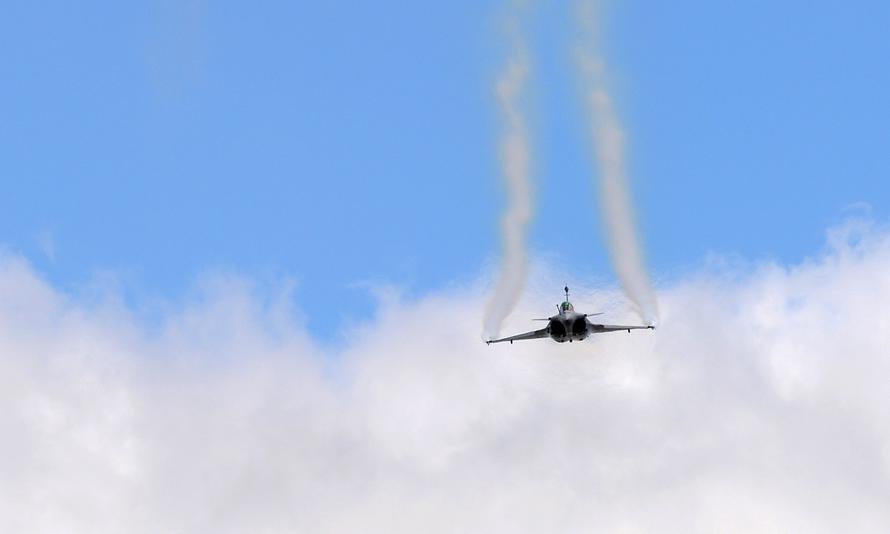Just days after first the United States and then Russia announced they would abandon the Intermediate-Range Nuclear Forces treaty (or INF), which for decades had kept Europe free of the threat of intermediate-range nuclear weapons, on Monday the French Air Force successfully conducted a nuclear strike mission, sending aircraft on an 11-hour mission to sneak a nuclear-capable cruise missile through simulated enemy air defenses and nail it into the sands of a test range south of Bordeaux, Defense News reported.
The February 4 mission, which was billed by the Armed Forces Ministry of the NATO member as “operation-representative,” featured a Rafale fighter jet releasing an MBDA made ASMP-A missile. Officials designed the drill to include “all phases characteristic of a nuclear-dissuasion mission,” including successive refueling by C-135 and A-330 tankers before aiming the missile – without a nuclear warhead – at a missile test area near the town of Biscarrosse.
“This success reinforces the technical and operational credibility of the deterrence that the airborne component has continuously maintained through the Air Force since 1964,” read an Armed Forces Ministry statement from Feb. 5.

Besides its aerial deterrence leg – which was on full display this Monday and supposedly meant to send a clear signal to the Kremlin even though it was the Trump administration which started the latest nuclear arms race by first pulling out of the INF – the French military has submarines capable of firing nuclear-tipped missiles.
Amusingly, in an effort to counter the appearance of a retaliatory move aimed at Russia which will any minute conduct its own nuclear strike test, and so on as the new Cold War escalates in tit-for-tat fashion, the French ministry statement stressed that the test mission had been long planned.
“There is no reason to believe that the timing of the test due to anything other operational or technical reasons,” agreed Bruno Tertrais, deputy director of the Fondation pour la Recherche Strategique think tank in Paris, claiming such similar tests occur roughly once per year. Surely
“The alternative would have been to cancel the test for fear that it was understood as response to INFT suspensions — that would have been fairly ridiculous,” Tertrais told Defense News, using shorthand for the 1987 Intermediate-Range Nuclear Forces Treaty.
And since it is “fairly ridiculous” to assume that any tactical nuclear drills by the Kremlin conducted in the coming days would be seen as retaliation to the suspension of the INF treaty, we fully expect Putin to conduct one or more such tests in the very near future, and eagerly look forward to NATO’s response.
via ZeroHedge News http://bit.ly/2SfPhWg Tyler Durden